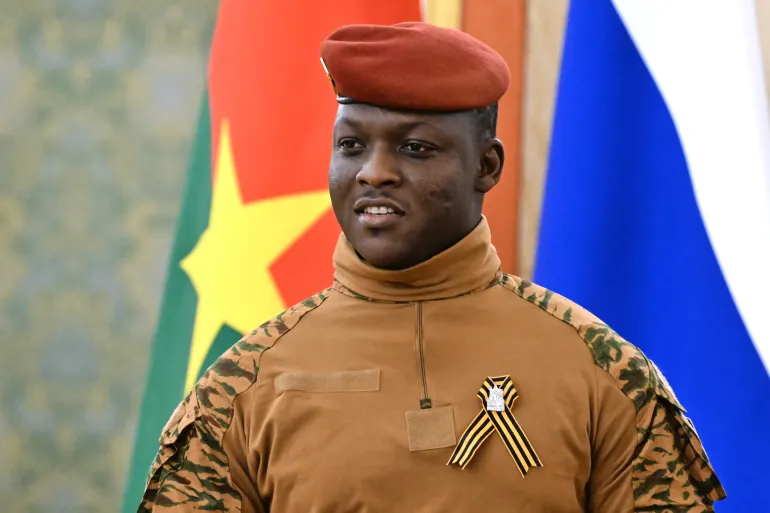Burkina Faso’s military government announced stunning arrests this week. Specifically, they detained eight members of a European humanitarian group. Furthermore, the ruling junta leveled severe charges. They accused the workers of “spying and treason.” This dramatic move escalates tensions. It highlights the growing anti-Western sentiment in the West African nation.
The detained individuals include three European nationals. Also, a Malian and four Burkinabe citizens are among the arrested. This incident casts a long shadow. It impacts critical humanitarian aid efforts in the Sahel region. Therefore, global attention is now fixed on Ouagadougou.
The NGO at the Center of the Controversy Burkina Faso
The group involved is the International NGO Safety Organisation (INSO). This organization is based in The Hague, Netherlands. Significantly, INSO provides crucial support. It offers security analyses for other aid groups. This information helps humanitarian organizations operate safely.
However, the military government views this work differently. Security Minister Mahamadou Sana confirmed the arrests on Tuesday. He claimed INSO collected and shared sensitive information. According to Sana, this data was detrimental to Burkina Faso’s security. He alleged the information went to “foreign powers.”
This is not the first clash with INSO. The authorities had already suspended the group. This suspension happened back in late July. The initial reason cited was “collecting sensitive data without authorization.” Despite the ban, Sana stated some members continued operations. They reportedly held clandestine meetings. They also continued covert information collection.
Who Are the Detained Workers?
The eight arrested individuals represent multiple nationalities. They include the country director of INSO. His deputy was also detained.
Specifically, the detainees are:
- A Frenchman.
- A French-Senegalese woman.
- A Czech man.
- A Malian national.
- Four Burkinabe citizens.
The Czech Ministry of Foreign Affairs quickly confirmed the news. They stated they are in contact with the detained Czech national’s family. Furthermore, they are exploring avenues for consular assistance. The identity of the other European nations involved is clearly evident. This adds a diplomatic layer to the legal confrontation.
The accusation of “spying and treason” is extremely serious. Consequently, these charges carry potentially harsh penalties. They show the junta’s aggressive posture toward foreign influence.
A Backdrop of Anti-Western Sentiment and Geopolitical Shift Burkina Faso
The arrests must be viewed within a broader context. Burkina Faso’s military junta seized power in a September 2022 coup. Since then, the country has significantly turned away from the West. France, the former colonial ruler, is a particular target.
This anti-Western shift is widespread across the Sahel region. In fact, neighboring countries like Mali and Niger have seen similar coups. These regimes often expel French troops and diplomats. They then turn toward new international partners. Russia, for instance, has increased its influence.
The military government justifies its actions easily. They cite the decadelong struggle against militant violence. Thus, they frame any dissent as undermining the security effort. Critiques of civil society or media are common. Therefore, the arrest of INSO workers fits this pattern. It signals the junta’s lack of tolerance for outside scrutiny. Collecting data on clashes between jihadist groups and the army is viewed as espionage.
Past incidents highlight this trend further. Previously, the government held French intelligence agents. They were detained for over a year. Therefore, the current arrests follow a worrying precedent. They confirm the mounting political pressure against France and the broader EU.
Consequences for Humanitarian Aid Burkina Faso
The arrests pose a major threat. They endanger the delivery of humanitarian aid. Burkina Faso is battling a severe jihadist insurgency. Consequently, millions of people face displacement and hunger. The humanitarian need is vast.
INSO’s work is crucial. It provides safety information to dozens of aid groups. If organizations cannot guarantee the safety of their personnel, they will struggle to operate. Therefore, the loss of INSO’s intelligence could force other NGOs to suspend their own activities.
The European Union has a deep commitment to the region. The EU aims to maintain dialogue with the transitional authorities. However, cooperation has already been strained. Budget support and security-related programs are on hold. The EU prioritizes inclusive human development. This includes health and education support. However, these programs rely on the safety framework provided by groups like INSO. The latest arrests make this work increasingly risky.
The humanitarian crisis thus risks deepening further. Aid workers may become more hesitant. They face the risk of being labeled spies. Therefore, the population, already suffering greatly, will bear the cost.
Diplomatic Fallout and the Call for Release
The international community now faces a diplomatic dilemma. European nations, including France and the Czech Republic, must respond. They must balance protecting their citizens with maintaining diplomatic channels.
The arrests challenge the fundamental principles of humanitarian work. Aid organizations operate independently. They rely on the trust of all parties. The junta’s accusations severely breach this trust.
The long-term impact on EU-Africa relations is concerning. Analysts urge the EU to rethink its Sahel strategy. This strategy must acknowledge the anti-Western sentiment. Building trust with these new regimes is vital. Otherwise, European engagement in the region will be severely challenged.
Ultimately, the focus remains on the eight detainees. The charges are severe. International pressure will likely mount quickly. The call for their swift release will dominate diplomatic talks. This incident serves as a stark reminder. It shows the growing complexity of operating in conflict zones. It highlights the rising hostility toward Western involvement in the Sahel.
Read More Articles click Here.
